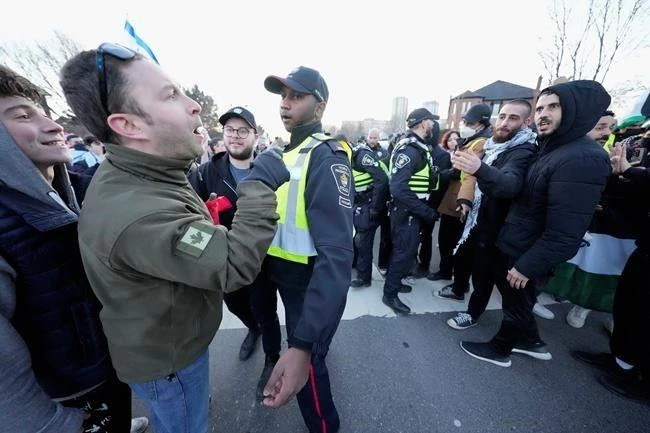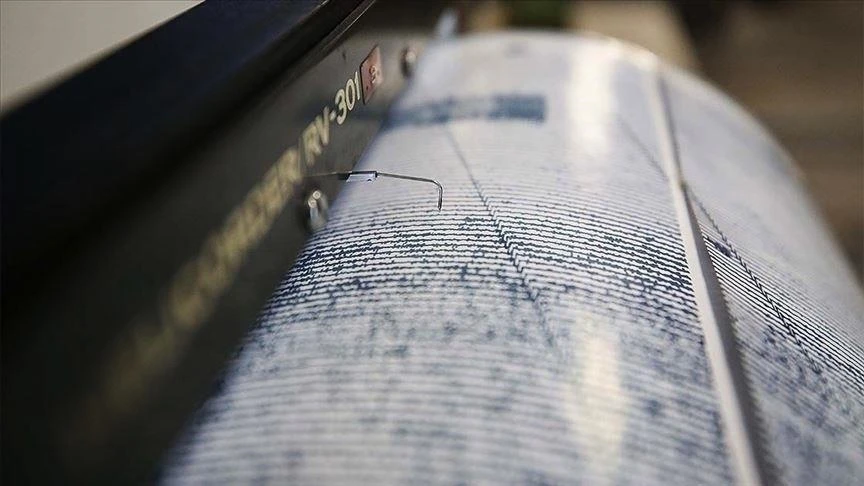Canadian Security Intelligence Service cautions against potential violence stemming from Israel-Palestine protests

Canadian Security Intelligence Service (CSIS) issues a warning about escalating “violent rhetoric” from extremist actors following the Israel-Hamas conflict, which could provoke violence in Canada
In the wake of the Israel−Hamas conflict, the Canadian Security Intelligence Service (CSIS) issued a warning on Monday about a surge in “violent rhetoric” from “extremist actors” that could provoke violence in Canada.
The cautionary statement was underscored by discussions revealed in newly released documents, shedding light on talks between the spy agency, the federal Public Safety Department, and leaders from Muslim and Jewish communities.
CSIS spokesperson Eric Balsam emphasized the uncertainty surrounding the long-term repercussions of the ongoing crisis. Balsam remarked, “While the long−term impacts of the current crisis cannot be easily predicted, it is clear that this conflict has raised tensions within our society.”
He highlighted the escalating rhetoric from extremist groups following the Hamas attack, suggesting that these developments could influence certain individuals to resort to violence.
The primary role of CSIS, as reiterated by Balsam, is to monitor and identify any potential threats to national security. However, he clarified that lawful protests and dissent, protected under the Charter of Rights and Freedoms, fall outside the agency’s purview.
Documents obtained under the Access to Information Act offer insights into discussions held between federal officials and leaders from Jewish and Muslim communities. The summaries of these discussions outline CSIS’s commitment to monitoring threats and thwarting any planned attacks.
Furthermore, CSIS remains engaged in ongoing dialogue with Muslim and Jewish leaders to address their concerns. Director David Vigneault’s meeting with the federal envoy to combat antisemitism and Islamophobia last fall exemplifies these efforts.
Among the concerns raised by Muslim and Arab leaders is the perceived silence from the government regarding the impact of the Middle East conflict on the safety of Palestinians and Muslims residing in Canada. Additionally, activists have faced backlash and surveillance for expressing support for Palestine, leading to concerns about stifled free speech.
Internal emails obtained through access-to-information laws reveal the RCMP’s monitoring of protests, albeit concluding that they remained legal and non-violent. However, incidents glorifying Hamas’ attacks against Israel, like the one under investigation by Ottawa police, have sparked condemnation from Jewish leaders and Prime Minister Justin Trudeau.
Jewish leaders have urged increased police action against hateful rhetoric at rallies, particularly the use of terms like “Zionist,” which they argue incites violence against Jews.
In response, the RCMP has provided frontline officers with a toolkit to identify signs of hate at protests, emphasizing the need for vigilance beyond synagogues and community centers to include Jewish-owned businesses and schools.
Moreover, Public Safety Canada has initiated discussions with universities to address rising tensions and antisemitism on campuses, emphasizing the importance of maintaining a safe and inclusive environment for all students.
As protests continue to unfold across Canadian universities, administrators have vowed to crack down on hate speech, warning of repercussions for those violating university policies.
Source: Newsroom



